If a wind blows; ride it
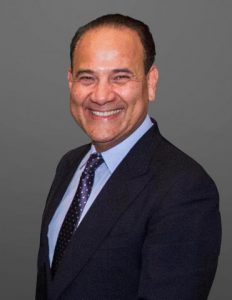 “The Arabian proverb – ‘If a wind blows, ride it!’ – was a favorite of my father, the founder of Abdul Latif Jameel. It sums up his pioneering and entrepreneurial spirit that lives on in our company today.” says Mohammed Abdul Latif Jameel, Chairman and Chief Executive Officer, of Abdul Latif Jameel.
“The Arabian proverb – ‘If a wind blows, ride it!’ – was a favorite of my father, the founder of Abdul Latif Jameel. It sums up his pioneering and entrepreneurial spirit that lives on in our company today.” says Mohammed Abdul Latif Jameel, Chairman and Chief Executive Officer, of Abdul Latif Jameel.
Looking back, perhaps this proverb could not have been more apt? Riding the winds, notably what are known as the trade-winds (the permanent east-to-west prevailing winds that flow in the Earth’s equatorial region) is a technique used for centuries by captains of the great sailing ships to cross the World’s oceans and they enabled exploration and the expansion of global commerce, establishing trade routes across Atlantic and Pacific oceans.
Today, the Abdul Latif Jameel business has diversified business operations in some 30 countries on six continents, employing over 11,000 people from more than 40 nationalities and has established corporate offices in London, Jersey (Channel Islands), Amsterdam, Monaco, Istanbul, Jeddah, Riyadh, Chengdu, and Tokyo.
But seventy-five years ago, the World – and this business – was very different.
In the beginning . . .
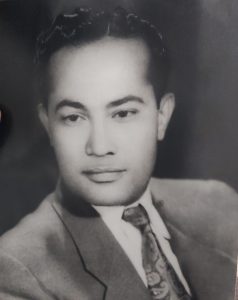
Let’s take a journey back in time . . . to 1945.
If most people were asked to think of a significant event that happened in 1945, the most common answer would probably be the end of World War II.
Except, perhaps, for a family business in the Middle East, as 1945 is also the year that the late Sheikh Abdul Latif Jameel established his new business in Saudi Arabia.
It all began in what was a small trading concern based from single gas station on a dusty road in the Red Sea coastal port of Jeddah, Saudi Arabia, surrounded by the harsh sands of the Arabian desert.
But as six long years of global conflict came to an end, Abdul Latif Jameel sensed a new wind blowing across the world.
Just before the war, on March 3, 1938, an American-owned oil well in Dammam, North-East Saudi Arabia, had drilled into what would soon be identified as the largest source of petroleum in the world. (that business was to become the energy giant of today: Saudi-Aramco.
With the post-WWI League of Nations now transforming into the recently formed United Nations and massive reconstruction of the economies and infrastructures of Europe and Pacific countries arising out of the ashes of war – a new age was quickly dawning.
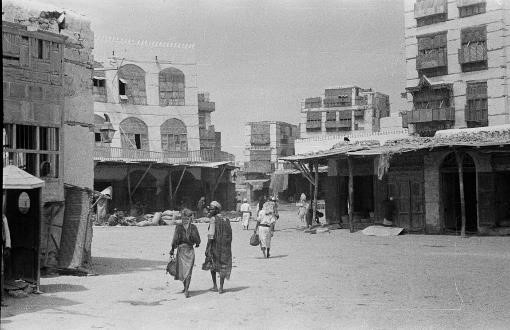
Abdul Latif Jameel saw that better personal transportation could connect and empower both businesses – and individuals – and so advance the economic development of society, and the lives of those around him. The motor vehicle – itself only just over fifty years old since Karl Benz’ invention in 1888, was to be at the heart of this new world, and his fledgling business venture, enabling people and goods to get around more quickly and easily than ever before, increasing trade and commerce in goods, services and ideas.This would be an age of global cooperation and optimism, of mass transport and communication. A world powered by rapidly developing technologies and bursting with opportunities.
That first Abdul Latif Jameel petrol station was a success. More followed. And as car ownership and mass transport in Saudi Arabia blossomed, so too did his trade.
It would prove to be an era of opening new doors and new horizons with new ambitions turning the key to building better lives.
An eye for opportunity
Over the next decade, Abdul Latif Jameel grew into a successful business. It could justifiably have taken the less risky approach of sticking with what it knew best. But Abdul Latif Jameel was not a businessman that liked to rest on his laurels. He realized that the greatest opportunity was not in fueling cars, but in selling them.
In 1945, Saudi Arabia and Japan had established diplomatic relations, and 1955, 10 years later, Abdul Latif Jameel approached an up-and-coming Japanese automotive manufacturer called Toyota Motor Corporation, as they too looked for expansion opportunities into the Middle East.
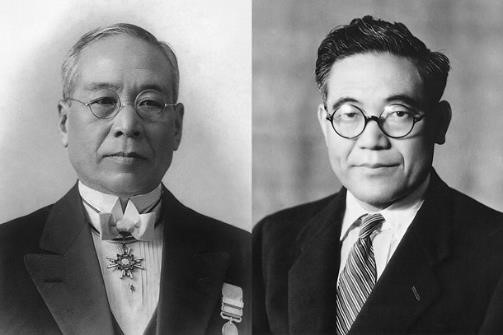
It was only in the later 1940s and early 1950s, however, that Toyota began to make a name for itself and expand internationally.Toyota Motor Corporation had been founded in Japan in 1937, by Kiichiro Toyoda, although the businesses roots go back several decades before that, with his father Sakichi Toyoda, a great inventor who built the Toyoda Automatic Loom which could weave cloth automatically.
Like Abdul Latif Jameel, it was a family business with a strong spirit of enterprise and a keen eye for an opportunity. It was just beginning to market its vehicles outside Japan. The approach from Abdul Latif Jameel was perfect timing. It was an established business with a growing workforce and a portfolio of gas station forecourts that would make ideal showrooms. It secured the rights to distribute Toyota motor cars in Saudi Arabia and placed an immediate order for four early all-terrain vehicles.
The Abdul Latif Jameel business was on its way.
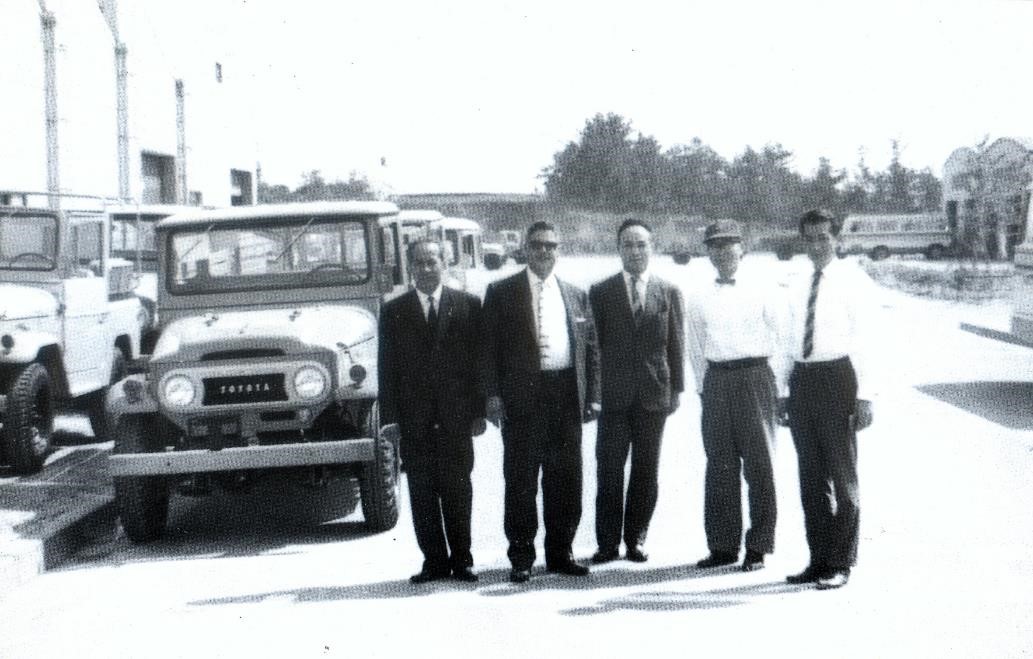
Investing in progress
The business proved itself agile enough to thrive and grow in a rapidly changing world. The Founder was joined in the business by his sons, including current Chairman and CEO, Mohammed Abdul Latif Jameel.
The USSR had won round one of the space race when it successfully launched the world’s first satellite, Sputnik 1, in 1957. It would be more than a decade until the USA finally eclipsed this feat with the first moon landing in 1969. Japan followed suit with its first satellite launch in 1970 this year, 2020, marking the 50th anniversary of that event.
Saudi Arabia itself was a rapidly growing economic influence thank to its bountiful natural resources, and the economies of Europe, North America and the Far East were throwing of the shackles of austerity to embrace a new age of technology-inspired innovation. Every home had a radio. Most now also had televisions. Markets were expanding across borders. Motor vehicle ownership was booming, and foreign travel was no longer the preserve of the super-rich.
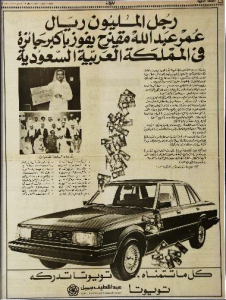
As the Abdul Latif Jameel business grew, the relationship with Toyota grew. One of Abdul Latif Jameel’s sons spent a period on secondment training at Toyota’s global headquarters in Japan, Mohammed Jameel attended university in Japan before moving on to MIT, and even his grandsons, Fady and Hassan Jameel, attended Tokyo’s Sophia University in the country. It reflects a deep affinity with Japan, its respectful people, their rich heritage and culture and with it, Japanese business culture.
The ethos of kaizen (continuous improvement) and genchi genbutsu (go and see for yourself) still permeates every aspect of the business today.
With support and encouragement from Toyota, Abdul Latif Jameel sought other distribution and retail opportunities across the Middle East and North Africa and became one of the World’s leading independent Toyota distributors, ultimately partnering with Toyota in Morocco, Algeria, Turkey, China, and Japan, Monaco and for a while, Germany and the UK.
Expansion and diversification
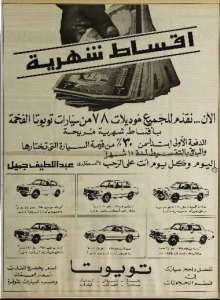 To support this growth, Abdul Latif Jameel Finance was established in 1979, to make it easier for customers, initially in Saudi Arabia, to finance their purchase of a Toyota, (this business later expanded across Egypt and Turkey).
To support this growth, Abdul Latif Jameel Finance was established in 1979, to make it easier for customers, initially in Saudi Arabia, to finance their purchase of a Toyota, (this business later expanded across Egypt and Turkey).
The same year, it set up a consumer products distribution and retail business, leveraging its links with Japan – a major producer of consumer electronics – to import electronics and consumer durables into Saudi Arabia.
Two years later, an outdoor advertising company was established to support the marketing of the business’s products.
In 1989, Abdul Latif Jameel also began exporting and distributing Lexus passenger vehicles – another Toyota brand – opening the first dedicated Lexus center in Saudi Arabia four years later, (ultimately leading to the opening of the World’s largest Lexus center in Riyadh, 2018).
By 1996, the business was operating across North Africa, in Asia, and was soon to expand into Turkey, (celebrating 20 years in 2019) including a general trading company in Japan and its first dealerships in China (also celebrating 20 years in 2019).
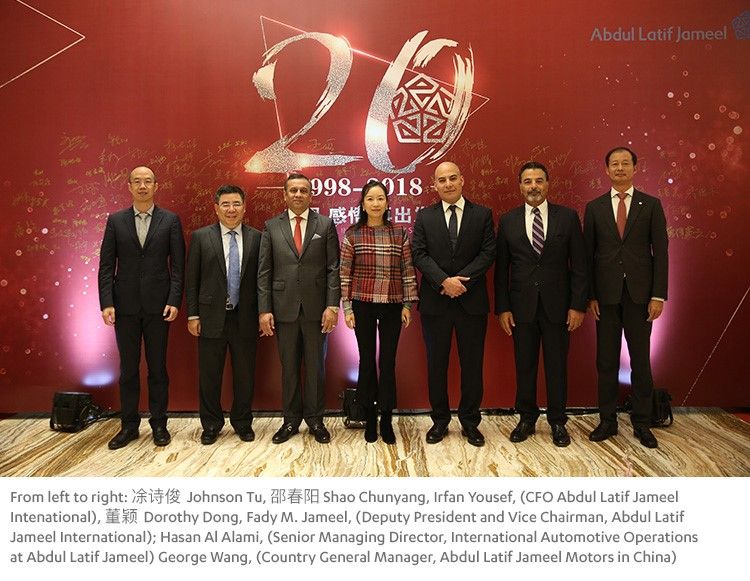
It had signed up new brands, like DENSO and Daihatsu, and diversified out of automotive dealerships into finance, consumer products and advertising. These were the green shoots of an enterprising focus on diversification that was to become the hallmark of the business’s later successes: leveraging new opportunities and developing valued strategic partnerships in new sectors – all focused on improving quality of life in the countries and communities in which the business operated.
From the earliest years, the Founder, Abdul Latif Jameel had emphasized the importance of helping others and supporting the community, regularly providing funding for good causes and social initiatives.
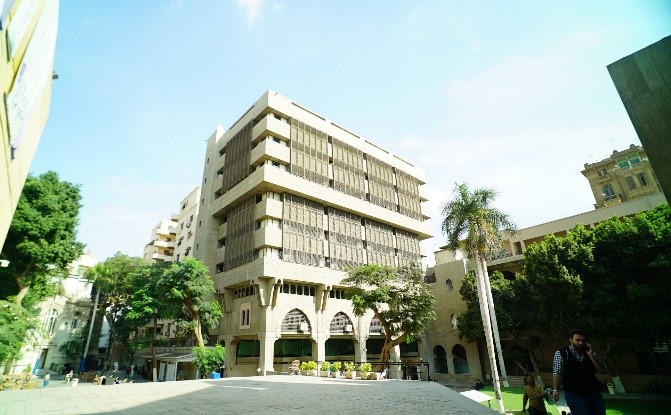
Five years later, in recognition of the family’s deep business links with Toyota, they launched the Jameel-Toyota Scholarship program at MIT, providing financial support for promising undergraduate students from more than 25 countries in the Middle East, North Africa and Asia which celebrated its 25th anniversary in 2019.In 1989, as walls tumbled down across Eastern Europe, the Jameel family’s philanthropy funded the establishment of the Jameel Management Center at the American University of Cairo, which quickly became a leading English-language, internationally accredited institution of higher education.
This was followed by the opening of the Abdul Latif Jamel Hospital in Jeddah, the first non-profit hospital in Saudi Arabia, specializing in medical rehabilitation.
Supporting communities
Ten years after the death of his father and the business’s founder, and almost 50 years after that first partnership with Toyota, in 2003 Mohammed Jameel formalized the family’s diverse philanthropic initiatives in a new entity, today known as Community Jameel – the family’s global philanthropy.

Community Jameel helps communities to transform themselves, focusing upon sustainable solutions in innovation, creativity, entrepreneurship and youth.
From joint initiatives with some of the world’s leading research institutions, to support for the arts, job creation, and educational and entrepreneurial opportunities, its programs are united by a common purpose: to continue Abdul Latif Jameel’s enduring commitment to the development of humanity and enabling positive change for a better future.
From these secure, long-standing and diverse foundations, the Abdul Latif Jameel business has grown thoughtfully, engaging new strategic partnerships and investing in sectors that have the potential for both economic and social benefits – investing tirelessly in what has come to be called ‘the infrastructure of life’ as a way to describe the developmental ethos of a business permeated and guided by the philosophy of the family’s philanthropy.
Already a key global player in the mobility sector, it has developed a strong presence in sectors as diverse as real estate, engineering and manufacturing, consumer products, financial services, advertising and media, and energy and environmental services.
Investing in the infrastructure of life
Recognizing growing global concern about climate change and rising demand for more sustainable sources, in 2012 it brought its energy and environmental services together in a new grouping, Abdul Latif Jameel Energy.
By combining Abdul Latif Jameel’s international energy expertise with its knowledge, experience, and commitment to local markets and sustainability, Abdul Latif Jameel Energy has grown quickly. The acquisition of Fotowatio Renewable Ventures (FRV) in 2015 cemented its position – and expanded its reach. It has helped to transform Abdul Latif Jameel Energy into one of the world’s leading solar PV developers. Building on this initial success in solar, Abdul Latif Jameel Energy has continued to invest. It has expanded into more technologies and geographies, developing its expertise and capabilities in wind, solar and water, and established a presence in more than 20 countries.
This environmental expertise was strengthened further in 2017, with the establishment of Almar Water Solutions, a specialist provider of technical capabilities for water infrastructure development. In 2018, Almar Water Solutions was awarded the contract to develop Kenya’s first large-scale desalination plant.
In time, Almar Water Solutions aims to take knowledge and best practice to new areas and provide water solutions that ensure the ongoing health of the next generation. It is already active in South Africa, Bahrain, Egypt, Kenya, Chile, as well as Saudi Arabia, the largest desalination market in the Middle East, and continues to monitor key markets around the world.
More recently, Abdul Latif Jameel has announced its first utility-scale battery project in collaboration with British developer Harmony Energy, as part of the company’s long-term investing plan to develop energy storage projects globally.
This passion for supporting a sustainable environment for future generations has seen Abdul Latif Jameel making its own contribution towards cleaner, more efficient mobility systems, too, recognizing the significance of sustainable and efficient transport options for flourishing communities.
As Toyota’s distributor in a number of markets for many years, it has played an influential role in introducing the world’s best-selling hybrid electric vehicle, the Toyota Prius, to drivers across the world. It also supplied a test fleet of zero-emission hydrogen-fueled Toyota Mirai vehicles for a pilot hydrogen vehicle fueling project.
Further demonstrating its commitment to a more sustainable future mobility model, Abdul Latif Jameel is a primary investor in RIVIAN, a fast-growing US-based EV and mobility firm. Other investors in RIVIAN include the retail giant Amazon, Ford Motor Company and Cox Automotive. Keeping and eye on the future, it has also more recently invested in JOBY Aviation, a US-based start-up pioneering electric air taxis.
Driving progress with purpose
Community Jameel has followed a similarly purposeful path, directly implementing programs and collaborating with major international institutions and grassroots organizations across six major fields of development: livelihoods, education, evidence, climate, health, and arts. All with the same aspiration: innovating to build a better future for all.
Its initiatives include five globally recognized research labs, four at MIT (J-WAFS, J-PAL, J-WEL and Jameel Clinic) and a fifth at Imperial College, London (Jameel Institute). These J-Labs bring together some of the best researchers in the world to look at critical issues – from alleviating poverty and improving education, to transforming water and food systems and revolutionizing healthcare through AI, big data and machine learning.
Other Community Jameel initiatives include Bab Rizq Jameel (BRJ), which began life as a not-for-profit job creation, training and support organization that has, so far, helped to create over 900,000 jobs across the Middle East and North Africa, and today has expanded to include recruitment, microfinance and entrepreneurial/small business services .
And also, Art Jameel, which provides arts and educational initiatives and supports artists and creative communities through heritage institutes and restoration programs, including the Jameel Arts Center in Dubai and Hayy Jameel in Jeddah.
Seventy-five years after that first gas station, innovative investment is still the cornerstone of Abdul Latif Jameel’s approach to business.
But today, it is on truly a global scale.
Through our continued investment in the ‘infrastructure of life’ in key markets around the world, from transport to energy, e-commerce to real estate, Abdul Latif Jameel is committed to supporting a cleaner, greener future for all, as we strive for solutions to some of the most challenging questions facing humanity, and our planet.






 1x
1x

 Added to press kit
Added to press kit


